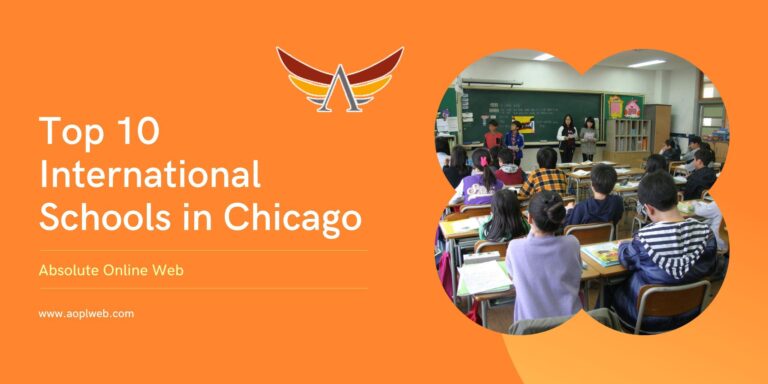Unlocking Chicago’s Potential Through International Education
In today‚Äôs globally connected surroundings, the importance of international education has surged dramatically. Chicago,a bustling metropolis known for its cultural diversity and economic dynamism,serves as a prime location for nurturing global skills. The Chicago Council on Global Affairs has recently examined how international education enriches the city‚ÄĒnot only by shaping students‚Äô worldviews but also by invigorating communities and bolstering the local economy. This article explores the Council‚Äôs latest insights, highlighting the broad-ranging advantages international education offers Chicago‚Äôs academic and economic spheres.
Global Skills: The Backbone of Chicago’s Evolving Workforce
As Chicago’s industries increasingly engage with international markets, the demand for a workforce fluent in global competencies grows. Professionals who can adeptly navigate cultural nuances and foster international partnerships are essential for driving innovation and maintaining competitive edges. This expertise benefits not only multinational corporations but also local businesses aiming to serve diverse clientele or collaborate with overseas partners.
Core qualities defining Chicago’s globally adept workforce include:
- Proficiency in multiple languages enhancing dialog with clients and collaborators
- Heightened cultural awareness promoting effective teamwork across borders
- Adaptability in responding to shifting global economic and regulatory landscapes
| Competency | Workforce Benefit | Industry Illustration in Chicago |
|---|---|---|
| Intercultural Communication | Facilitates smoother collaboration and minimizes conflicts | Healthcare providers serving multicultural communities |
| Global Market Insight | Supports strategic positioning and expansion | Manufacturing firms exporting globally |
| Technological and Digital Fluency | Enables efficient remote and international operations | Financial institutions managing global portfolios |
Economic Impact: How International Education Fuels Chicago’s Growth
International education acts as a catalyst for Chicago’s economic development by infusing the city with innovative talents and diverse perspectives. Students from around the world contribute specialized knowledge in sectors such as technology, finance, and the arts, sparking entrepreneurial ventures and enhancing Chicago’s global competitiveness. Their presence also stimulates local economies through expenditures on housing,retail,and cultural events,creating a multiplier effect that benefits numerous industries.
Moreover, the long-term advantages extend beyond immediate financial contributions. Chicago gains from robust cross-cultural networks that open doors to international trade and investment. Graduates often become informal ambassadors, promoting Chicago’s business environment abroad. Partnerships between academic institutions and corporations further drive innovation through joint research and workforce development programs. The table below summarizes the economic contributions of international students in Chicago:
| Area of Impact | Annual Economic Input | Primary Benefit |
|---|---|---|
| Local Expenditures | $900 million | Boosts retail and housing markets |
| Employment Generation | 5,500 jobs | Supports hospitality and service sectors |
| Research Funding | $130 million | Advances technological innovation |
- Talent Pipeline: International graduates supply Chicago’s industries with critical expertise.
- Cultural Diversity: A rich mix of students enhances the city’s social and cultural fabric.
- Global Business Links: Educational collaborations expand Chicago’s international commerce networks.
Fostering Global Connections Through Academic Collaborations
Chicago’s universities are at the forefront of creating educational models that transcend borders,building a truly global academic community. By forming strategic partnerships with institutions across Europe, Asia, and Latin America, these schools offer students and faculty immersive cultural experiences and joint research opportunities. Such collaborations enrich curricula and nurture essential skills like cultural empathy and global problem-solving, reflecting the interconnected nature of today’s challenges.
Benefits of these international academic alliances include:
- Improved intercultural dialogue: Students gain direct exposure to diverse viewpoints, preparing them for global careers.
- Collaborative innovation: Joint projects address urgent global issues such as climate resilience and public health.
- Shared academic resources: Access to combined libraries, databases, and expert networks enhances research quality.
| Region | Focus Area | Meaningful Achievement |
|---|---|---|
| Europe | Clean Energy Technologies | Secured joint funding for wind power research |
| Asia | Smart Urban Planning | Established student exchange programs |
| Latin America | Community Health Programs | Developed collaborative health clinics |
Expanding Access to Global Learning for All Chicago Students
Chicago’s rich demographic diversity offers a unique possibility to broaden access to international education. By leveraging digital platforms, schools can implement virtual exchange programs that connect students from underrepresented communities with peers worldwide, eliminating travel-related barriers. Increasing scholarships and financial aid targeted at international study further ensures that economic challenges do not hinder talented students from gaining global exposure.
Community involvement is crucial to amplifying the reach and impact of these initiatives. Partnerships with cultural institutions,foreign consulates,and multinational corporations create immersive learning experiences beyond conventional classrooms. These collaborations integrate language immersion, global career mentorship, and intercultural workshops into Chicago’s education system, equipping students with practical skills and networks essential for success in a global economy.
Looking Ahead: The Future of International Education in Chicago
As global interdependence deepens, the role of international education in Chicago’s growth trajectory becomes increasingly vital. By fostering a diverse, globally aware community, the city prepares its students to excel both locally and internationally. Through promoting cross-cultural understanding and nurturing future leaders, international education remains a cornerstone of Chicago’s development and its stature on the world stage. The Chicago Council on Global Affairs will continue to spotlight these transformative trends as the city embraces the challenges and opportunities of an ever-globalizing future.





